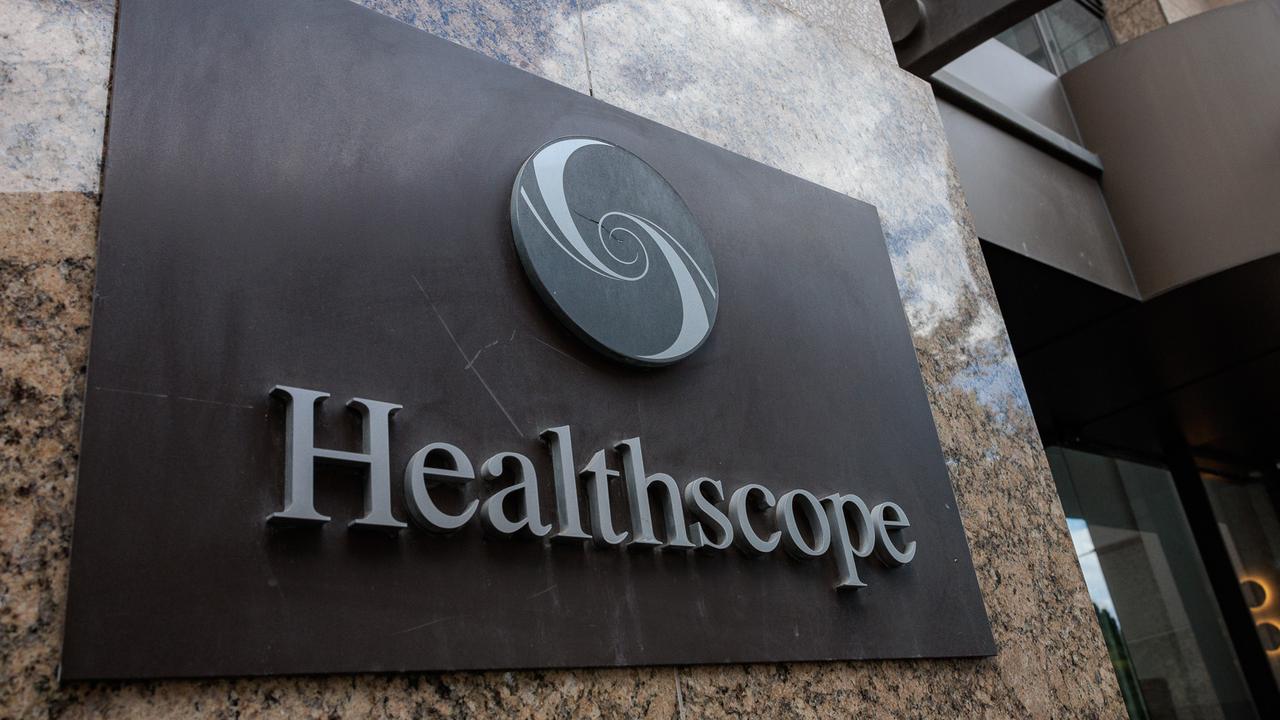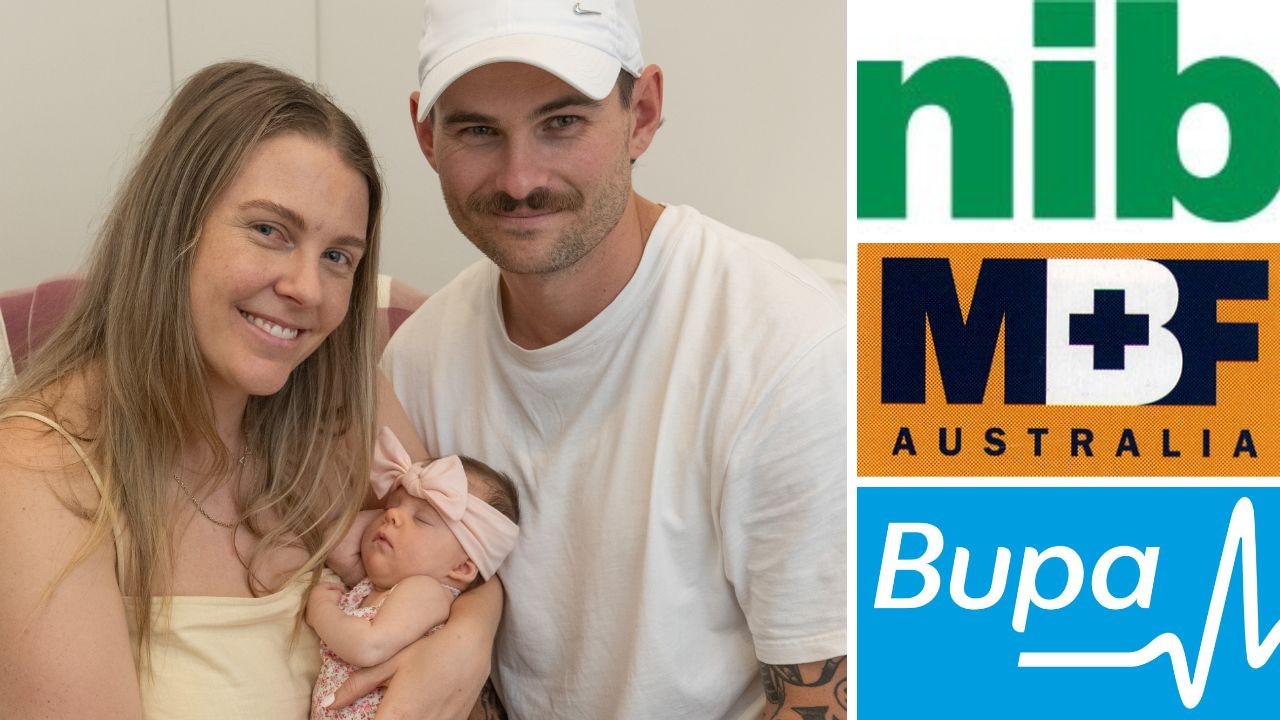Six hacks to save money on your private health insurance
Leading experts reveal their top six tips on how to get the best deal on your private health insurance - including this warning on a mistake couples often make.
Health Funds
Don't miss out on the headlines from Health Funds. Followed categories will be added to My News.
When it comes to choosing the right private health insurance, experts say it should reflect your budget and specific health needs.
The next private premium hikes are scheduled to take effect on April 1, with cost-of-living concerns already putting pressure on households.
Last year’s increase of 3.03 per cent was the highest in five years and some funds will have bigger price rises than others.
This is why it’s important to know how to get the best value for money and how to compare your policy.
Here are some simple tips to help you save and get the best value from your health fund.
Check if you’re getting the best deal
University of Melbourne health economics expert Professor Yuting Zhang says it’s crucial for consumers to regularly review their coverage at least once a year.
“Private health insurers may adjust premiums annually, and your personal circumstances can change as well,” Prof Zhang says.
“Regularly reviewing your coverage and waiting period terms ensures they still meet your needs.”

Private Healthcare Australia policy and research director Ben Harris also recommends checking privatehealth.gov.au to ensure policy holders are getting the best deal.
“Put a note in your diary and visit the website to search your policy and see if there’s a cheaper cover providing the exact same thing,” Mr Harris says.
“If you’ve got the same level of coverage you don’t serve any extra waiting periods. It’s easy for consumers to chop and change funds and go for the quicker deal.”
Live Financial Planning’s Marcus Nyholm says some insurers also offer special promotions such as cashback deals or waived waiting periods for new members.
“If you’re happy with your current insurer, don’t hesitate to ask them to match a competitor’s offer,” he says.
Consider a higher excess
Your excess is the amount that you will need to pay when you make a claim.
Finder health insurance expert Tim Bennett says increasing your excess will lower the cost of monthly premiums, which can save money over the course of the year.
“If you choose to do this, make sure you are comfortable paying the higher amount should you need to make a claim,” he says.
Mr Nyholm adds raising your excess can be a good option if you’re young, healthy and don’t expect to use hospital services soon.
“However, it’s essential to ensure the higher excess is still manageable if you do need to make a claim.”
Get covered before turning 30
If you have not taken out and maintained private patient hospital cover from the year you turn 31 and then you decide to take it out later in life, you will pay a 2 per cent Lifetime Health Cover (LHC) loading on top of your premium for every year you are aged over 30.
Mr Harris says the Federal government will send a letter to people before turning 30 to consider private health insurance.

He also says that half a million Australians paid the Medicare Levy Surcharge (MLS) last year, despite having a suitable income to pay for private health insurance.
“That makes no sense and it puts more pressure on our public hospitals, so we encourage anyone who has had a pay bump over the past year to check whether they’ve hit the threshold, they can either buy health insurance or pay extra tax,” he adds.
You will not pay the MLS if your income is less than the base income threshold, which is $93,000 for singles or $186,000 (plus $1500 for each dependent child after the first one) for families.
Tailor your extras cover
Mr Nyholm says extras cover for services including dental, physio, and optical can be a valuable addition to your policy, but it’s important to ensure you’re only paying for what you’ll actually use.
“Review your claims history to see if you’re getting value from your extras. If not, consider adjusting your policy to exclude less-used benefits or reduce your level of cover,” he says.
Mr Harris adds that many people look to use allied health, with some policies being more flexible than others.
“Many funds will cover some pharmaceuticals that aren’t covered by the government,” he says.

“If you have diabetes or sleep apnoea, the equipment can be paid for through your private health insurance.”
“We fund more dental than any government and many insurers allow you to have two free scale and cleans a year.”
Gold, Silver, Bronze: What is best for me?
Mr Bennett says cover for child birth is only available on Gold tier policies, but most couples only have one person that would ever need to claim on it.
“It may seem more convenient for you and your partner to share a policy, but it can actually end up costing you more,” he says.
Mr Harris says if you’re upgrading your policy from silver to gold, then you must wait 12 months before using certain services including maternity.
“If mental health care is really important to you, it’s the most common thing that people under 50 use their private health insurance, for them the silver plus or a gold policy will be a good option,” he says.
Check your fund’s preferred providers
Mr Harris encourages visiting your health fund’s website to see if they have any arrangements with preferred local medical providers including dentists and surgeons.
“This can save you hundreds if not thousands,” he says.
“Doctors’ fees will vary enormously and dentists can charge a fortune. There’s a big range depending on who your health fund has arrangements with.
“For a knee reconstruction, the average out-of-pocket cost is usually zero, but if you do have to pay out-of-pocket it’s often between $3000 to $5000.”
Originally published as Six hacks to save money on your private health insurance





